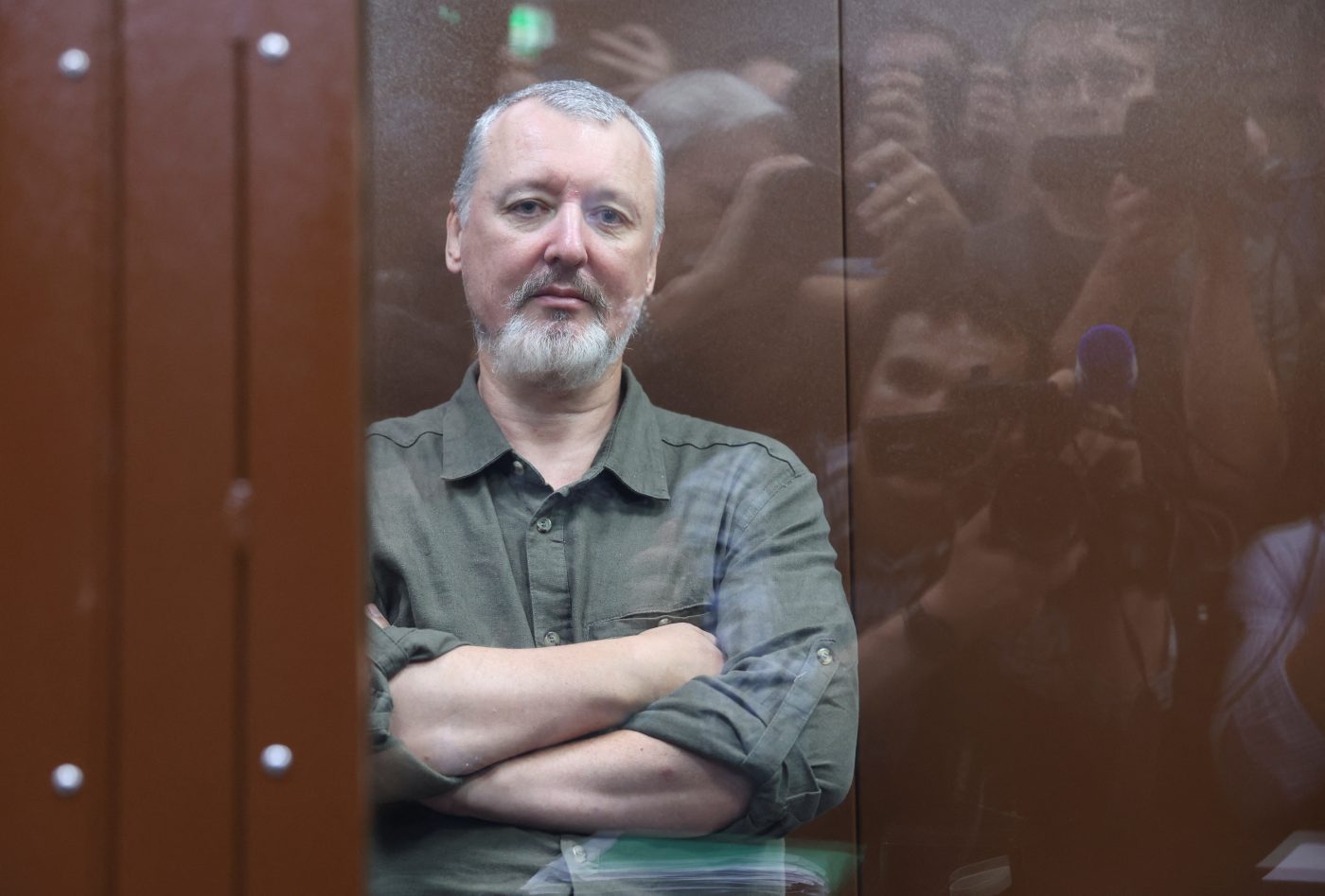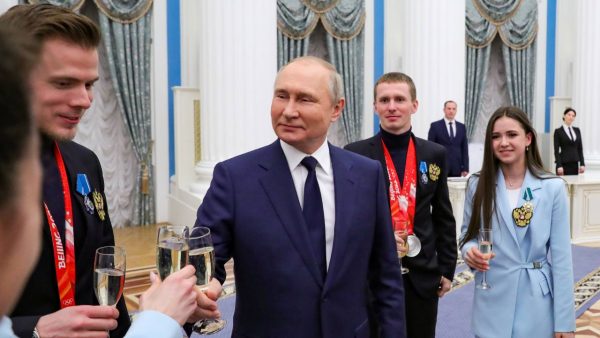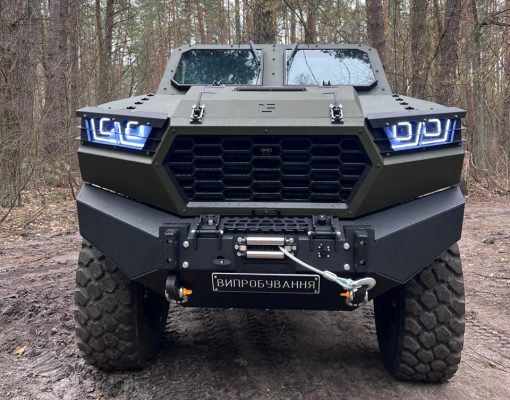Many in Russia and abroad interpreted Yevgeny Prigozhin’s June 23-24 mercenary mutiny as Putin’s biggest humiliation to date and as a sign of his weakness. The lesson taken by his army and security services is even more dangerous for the regime — that they should not interfere in any crisis involving those from the ruler’s inner circle. It is a poisonous combination, and no dictator can survive it in the long term.
Fear is the closest ally of any dictator, and the best option for a regime under challenge often appears to be immediate repression, Stalin-like. But Putin is no Stalin, and is in the middle of a very difficult war. He needs all the resources available, including those who have betrayed and failed him, like the rogue leaders of mercenary groups and generals with conflicting loyalties.
So Putin adopted a less dramatic approach. First, he decided to find a new use for Prigozhin having concluded that the mercurial ex-convict remains a valuable asset. It is true that Putin could have killed him (and still may), but while dictatorships are perfectly content to take lives, it’s not always their first response.
Putin removed Prigozhin from the political game, sending him to Russia’s next-door client state, and once this problem was solved, immediately started looking for a way to use him. Wagner’s barracks in Belarus, some distance southeast of Minsk, and training sessions with Belarusian special forces troops just three miles from the Polish border, have already made the Ukrainians and neighboring NATO states nervous. It’s not subtle, but from the Kremlin’s point of view, it’s a win.
Thus, the scene was prepared for the Belarusian dictator Aliaksandr Lukashenka to drop his July 23 bombshell in the presence of Putin and the TV cameras by claiming that Wagner fighters wanted to march towards the West. “We’ll go on an excursion to Warsaw, to Rzeszów,” Lukashenko quoted Prigozhin’s mercenaries as saying. The words were calculated to reach the ears of Poland, which is at the heart of NATO’s military response to the war in Ukraine and serves as the main logistical hub for arms flowing into Ukraine.
The city of Rzeszów — just 50 miles west of the Ukrainian border — popped up in the news last month, when the mayor, Konrad Fijołek, let slip in an interview that a permanent NATO base for US, British, and Canadian forces was to be established in his town.
Lukashenka’s words can therefore be seen as a direct response, and as a broader threat to what the Russians will see as a target-rich area frustratingly beyond their reach (unless they want a direct confrontation with the alliance). Poland, and allies who already have troops based in the area, now have to consider the possibility that the Kremlin may drip-feed the battle-hardened and criminally inclined group into its territory to cause trouble. It is not clear how serious the threat is, but from now on, Poland must take the threat into account, and allocate resources to deal with it. On July 21, it announced the redeployment of units from the west of the country to the east for this reason.
Next, Putin turned to the army and the security agencies charged with preserving political stability. The Kremlin made a conspicuously half-hearted effort to dispel rumors about the interrogations or even detentions of top Russian generals – including the commander of Russia’s war against Ukraine, General Sergey Surovikin, and possibly, the deputy head of GRU military intelligence, Lt. Gen. General Vladimir Alekseyev. He nonetheless reserved an option to return them to their positions – just as Putin did last year with the FSB General Sergei Beseda. After all, Putin doesn’t have the luxury of scattering his generals. Even so, the rumors reminded the army that Putin was still perfectly capable of harassing the top brass.
Putin also moved the Interior Ministry’s Grom special forces unit (about 7,000 men) to the command of the National Guard, Rosgvardia. Thus, he straightened the special forces’ command structure but also delivered a lesson in military discipline. It was no big secret in the special forces that one way to avoid being sent to war was to get transferred to Grom. Not an option anymore.
Next, Putin finally cracked down on the ultra-nationalist opposition. We have written previously that Putin considered the larger threat to his regime, not Prigozhin’s mutiny itself, but the reaction of the military and the security services to that mutiny. The uprising opened the door to criticism of Russia’s military leadership from within, and it became vitally important for Putin to shut it. His generals prudently shut their mouths, so the only remaining outlet for such criticism was the opposition of time-hardened imperialists, like the fugitive mass murderer Igor Strelkov (Girkin), an FSB veteran who became defense minister of the self-proclaimed Donetsk People’s Republic in 2014. (Strelkov was convicted in absentia by a Dutch court last year for his role in shooting down Malaysia Airlines flight MH17.)
Strelkov was arrested and sent to the notorious Lefortovo prison. Two days before, the Kremlin came for his associate Vladimir Kvachkov, a 75-year-old former colonel in the Soviet special forces with far-right views, who had been accused years ago of attempting to kill Anatoly Chubais, a leading official responsible for the privatization of the state property in Russia. In the 2000s, Kvachkov’s people detonated a roadside bomb and shot up Chubais’s car with automatic gunfire, but the assassination attempt failed, and he was sent to prison.
When Kvachkov was released, he mounted a political comeback that went nowhere and was later arrested once again by the FSB for attempted mutiny. He was imprisoned until 2019, but this didn’t change his nature and he continued criticizing Putin. The retired colonel has been lambasting Putin’s military operation since the beginning of the war in Ukraine on YouTube and Telegram, often speaking alongside Strelkov.
Kvachkov’s popularity was limited to aging Red Army retirees, but nonetheless, the Kremlin accused him of “discrediting the Russian Army.” Putin’s secret police have (belatedly) proved to be meticulous in eliminating that sort of threat to Putin’s way of fighting the war in Ukraine.
Shortly before the Kremlin turned on Girkin and Kvachkov, another rebellious commander fell into disgrace. Maj. Gen. Ivan Popov, a senior officer commanding frontline units fighting to halt Ukraine’s southern offensive, was fired as commander of the 58th Combined Arms Army after accusing the ministry’s leadership of failing to provide sufficient support to his troops against Ukrainian artillery. A recording with Popov’s criticism of the military command was spread via hundreds of pro-war telegram channels, reaching an audience of millions.
The far-reaching damage control exercised by the Kremlin has had one unexpected consequence. It showed the true level of support for ultra-patriotic sentiment within the military, as well as its capacity to self-organize to defend its own.
The war is still widely supported in Russian military circles, and one might expect some protests in support of these well-known officers, respected by their subordinates, and veterans who enjoyed massive following on Telegram.
But there was no sign of thousands of angry servicemen and veterans taking to the streets in support of Girkin and Popov. Instead of mass marches, just a hundred dared to appear outside the Moscow court where Girkin’s hearing was taking place. They were easily dispersed by police.
Irina Borogan and Andrei Soldatov are Nonresident Senior Fellows with the Center for European Policy Analysis (CEPA.) They are Russian investigative journalists, and co-founders of Agentura.ru, a watchdog of Russian secret service activities.
Europe’s Edge is CEPA’s online journal covering critical topics on the foreign policy docket across Europe and North America. All opinions are those of the author and do not necessarily represent the position or views of the institutions they represent or the Center for European Policy Analysis.





